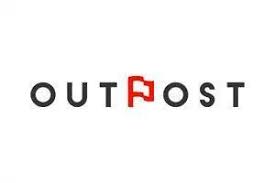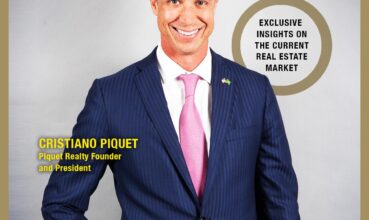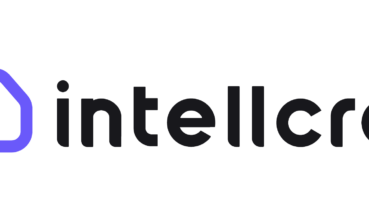For Harald Grant, Associate Broker and Senior Global Real Estate Advisor at Sotheby’s International Realty, the Hamptons real estate market isn’t just about properties—it’...
Exposure Risk: Property Managers Face Hidden Liability Through Insurance Non-Compliance




“We had no idea about the extent of non-compliance until we looked at the data. Suddenly we realized 60-70% of property owners weren’t meeting the insurance requirements in their management agreements.” – Ryan Letzeiser, CEO of Obie Insurance
A silent crisis is brewing in the property management industry. While property managers focus on maintenance requests, tenant relationships, and occupancy rates, an invisible threat lurks in their portfolio: inadequate insurance coverage that could bankrupt their business overnight.
The Dangerous Assumption
Most property management companies operate on a fundamental assumption: that property owners have adequate insurance policies with the management company properly listed as an additional insured. After all, it’s written into virtually every management agreement.
Ryan Letzeiser, CEO of Obie Insurance, discovered this assumption is dangerously wrong.
“Property managers have no way to efficiently police whether owners are naming them on insurance policies,” Letzeiser explains. “When someone slips and falls at a property, they’re going to sue both the owner and the property manager. If the manager isn’t properly covered on the owner’s policy, they’re immediately exposed.”
The consequences are far from theoretical. One Obie customer found himself named in seven lawsuits over a two-year period, spending between $2,000 and $10,000 per case just to extricate himself from legal proceedings where he should have been protected by the owner’s policy.
A $10,000 Problem Hiding in Plain Sight
The verification gap exists because property management has traditionally lacked efficient tools to track insurance compliance across portfolios that might include hundreds or thousands of properties.
“In California, proper insurance coverage is required in the standard realtor agreement,” notes Letzeiser. “But there’s no efficient way for managers to verify compliance.”
When Obie began analyzing portfolios, the results shocked even industry veterans. Their data revealed that 60-70% of property owners failed to meet the insurance requirements specified in their management agreements.
This non-compliance stems from multiple causes:
“Some owners are accidental landlords who inherited a property and never updated the homeowner’s policy, even though they’ve had tenants for years,” Letzeiser explains. Others deliberately avoid updating insurance to prevent mortgage servicers from discovering the property is no longer owner-occupied, which could trigger loan covenant violations.
In other cases, existing insurance carriers simply can’t or won’t provide the coverage required. “We’ve seen situations where owners need to drop their current coverage entirely and find a new provider because their existing company won’t allow the necessary modifications.”
When Disaster Strikes
The risks extend far beyond routine slip-and-fall cases. In catastrophic scenarios—like a death on the property—the financial exposure can be devastating.
“In a wrongful death situation where someone can prove the property wasn’t safe, you’re looking at an immediate million-dollar payout,” cautions Letzeiser. “This happens more often than people realize, especially with issues like carbon monoxide poisoning in short-term rentals.”
Without proper coverage, property managers become caught in the crossfire, forced to utilize their own business insurance. As claims accumulate, they face rising premiums or, worse, becoming uninsurable—effectively ending their business.
The Technology Solution
Addressing this industry-wide problem, Obie developed a technological approach to insurance compliance verification.
Their recently launched Policy Proof system integrates directly with property management software to continuously monitor portfolio changes. “We digitally intake all units under management, track daily additions and removals, and automatically notify owners about required coverage,” explains Letzeiser.
The verification process combines artificial intelligence with human expertise. “Our AI reads policy documents and extracts key information with a confidence score. When the AI isn’t certain, our team reviews the policy directly before accepting or rejecting it.”
For owners who fail to provide compliant insurance, Obie offers a critical safety net: “We issue a million-dollar liability policy that protects the property manager, who can then charge this back to the non-compliant owner. It’s just $20 monthly—affordable protection against a potential business-ending claim.”
This approach mirrors developments in renter’s insurance from the past decade. “Fifteen years ago, the industry developed systems to ensure tenants maintained required renter’s insurance. We’re applying that same principle to owner compliance.”
Beyond the Insurance Black Box
Obie is also addressing another persistent industry complaint: the complexity of insurance itself.
“Customers tell us insurance is a black box,” Letzeiser says. “They don’t understand what they’re buying or how coverage differs between policies. Even with a 400-page contract, you’d need legal counsel to truly understand what is and isn’t covered.”
By specializing in 1-4 unit rental properties across all 50 states, Obie has developed products specifically tailored to landlords’ needs. “I look at everything through the lens of being the person who used to purchase this rather than the guy trying to sell it,” notes Letzeiser, drawing on his background in real estate private equity.
The result is insurance that’s both comprehensive and accessible through multiple channels. “Whether customers come to us directly or through an agency like Goosehead or Liberty Mutual, our priority is meeting them wherever they prefer to purchase.”
The Road Ahead
As awareness of insurance exposure grows among property managers, Obie continues expanding its offerings. Their roadmap includes coverage for larger apartment buildings and additional insurance products tailored to commercial real estate needs.
“The future is bright in this segment,” Letzeiser states. “Traditional carriers haven’t made it easy for anyone to obtain or modify coverage. We’re changing that approach.”
For property managers concerned about potential liability exposure, the message is straightforward: don’t assume owner compliance—verify it. With technological solutions now available to automate this process, managers can protect their businesses while creating a safer ecosystem for all parties involved.
Similar Articles
Explore similar articles from Our Team of Experts.


In an era where urban housing costs continue to strain city dwellers, Sergii Starostin has transformed his personal struggle as an immigrant into a thriving solution for modern living. At th...


In Miami’s luxury real estate market, differentiation is everything. While many brokers tout their market knowledge or networking capabilities, Cristiano Piquet, founder of Piquet Real...


In a commercial real estate landscape where many sectors are struggling, Chicago’s retail market stands as a beacon of opportunity. Anthony Campagni, Principal at Canvas Real Estate, h...


The commercial real estate (CRE) industry is making significant advancements in the analysis and valuation of properties, as market pressures compel professionals to reevaluate long-standing...




